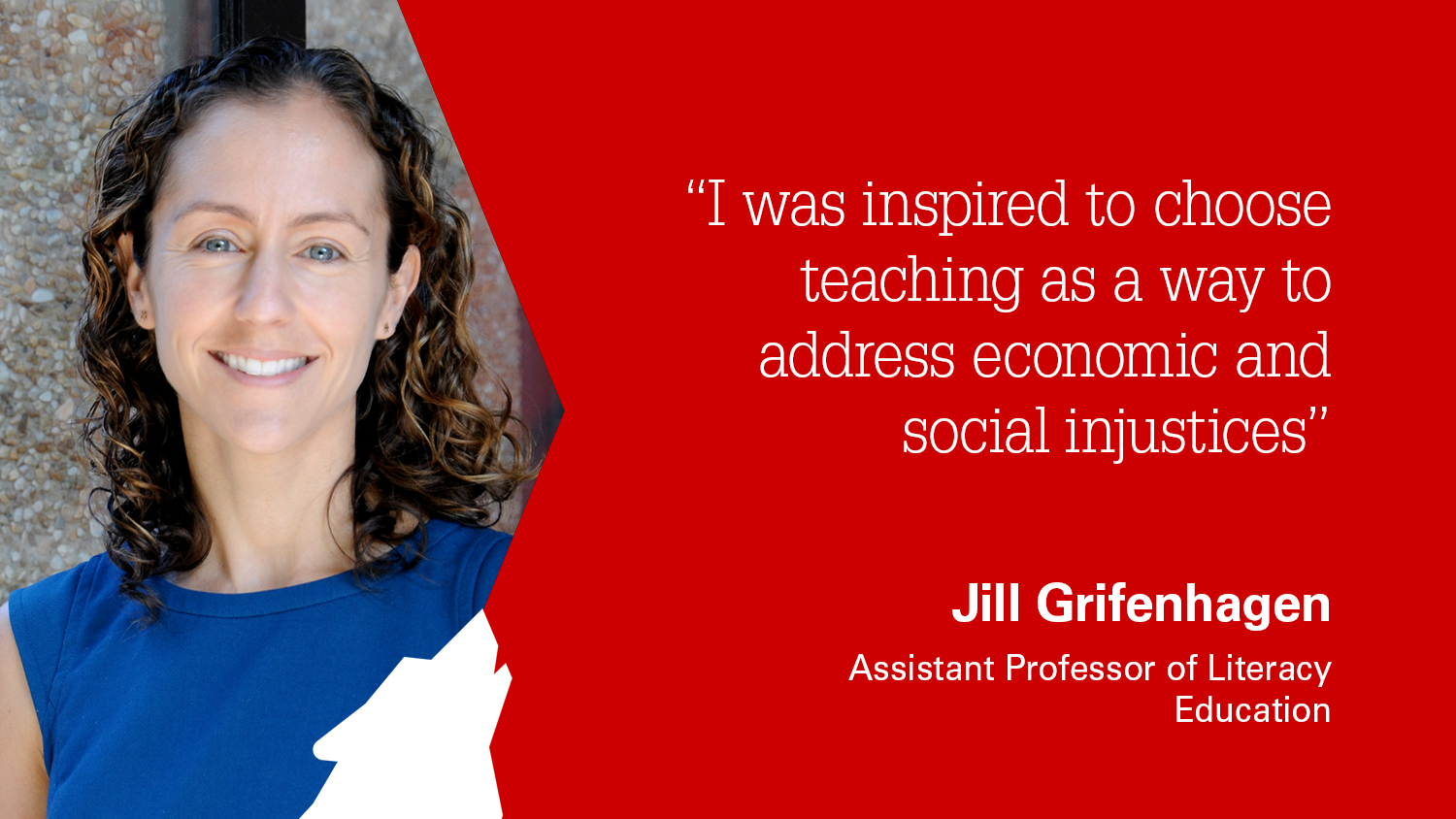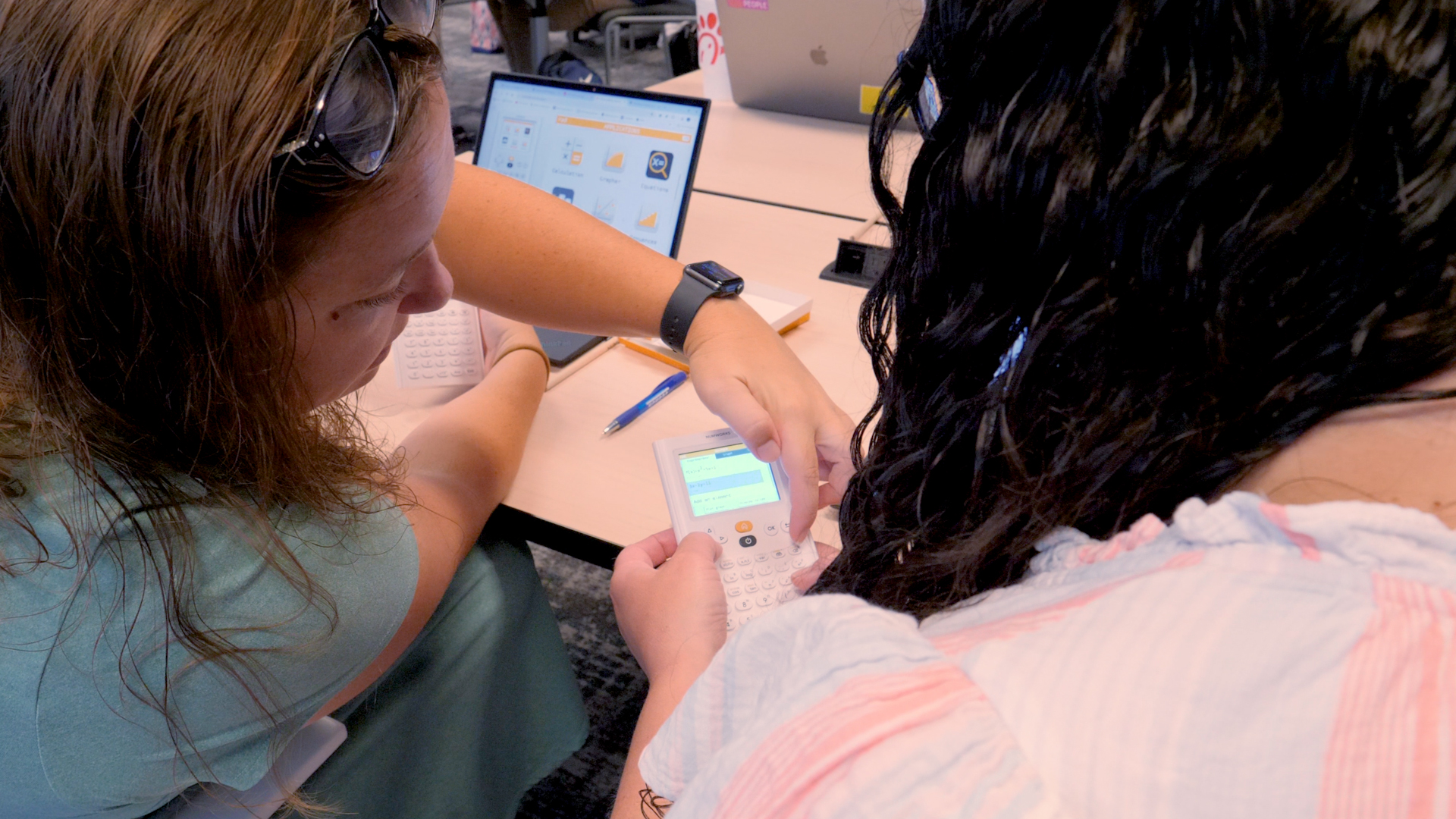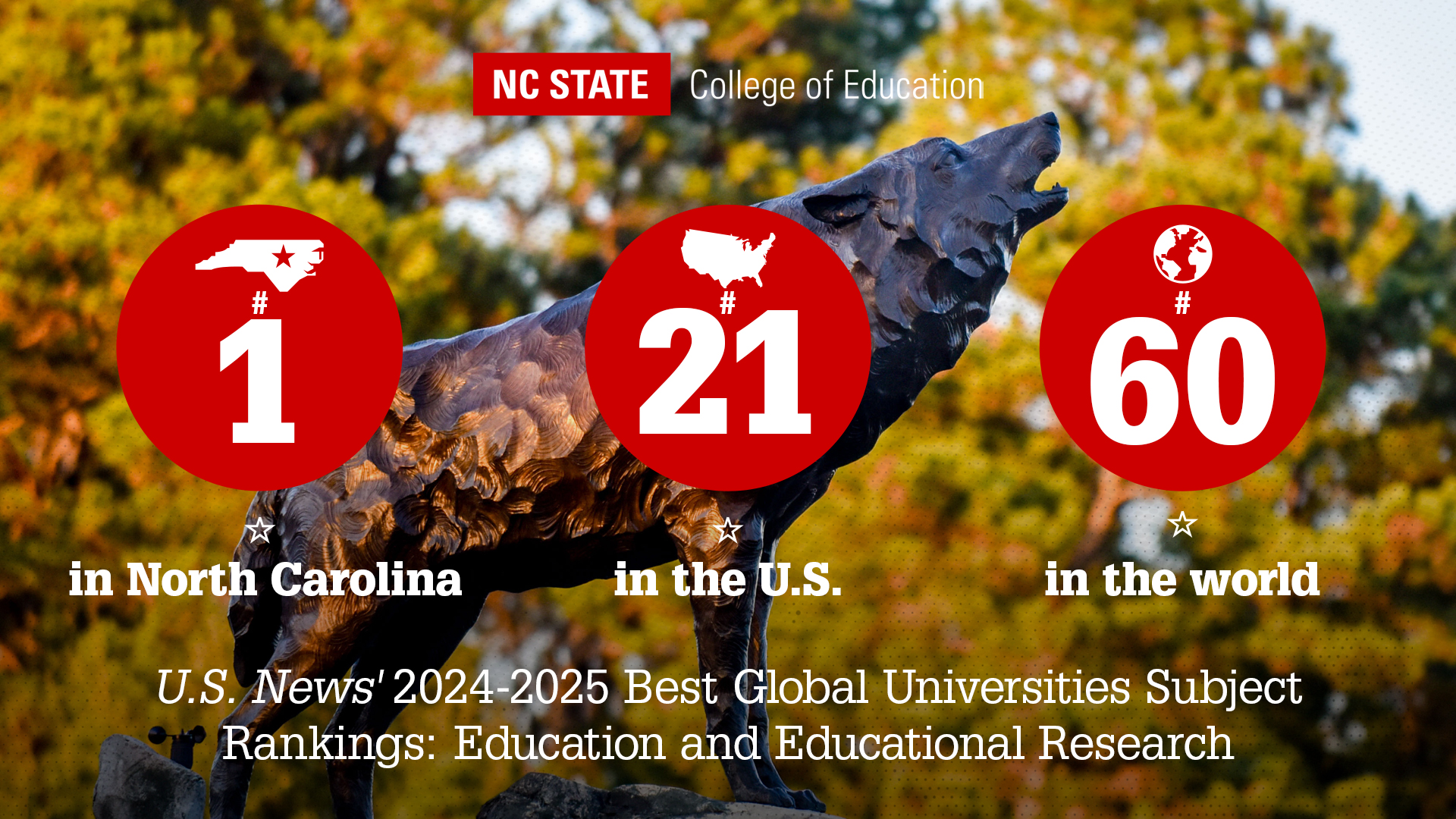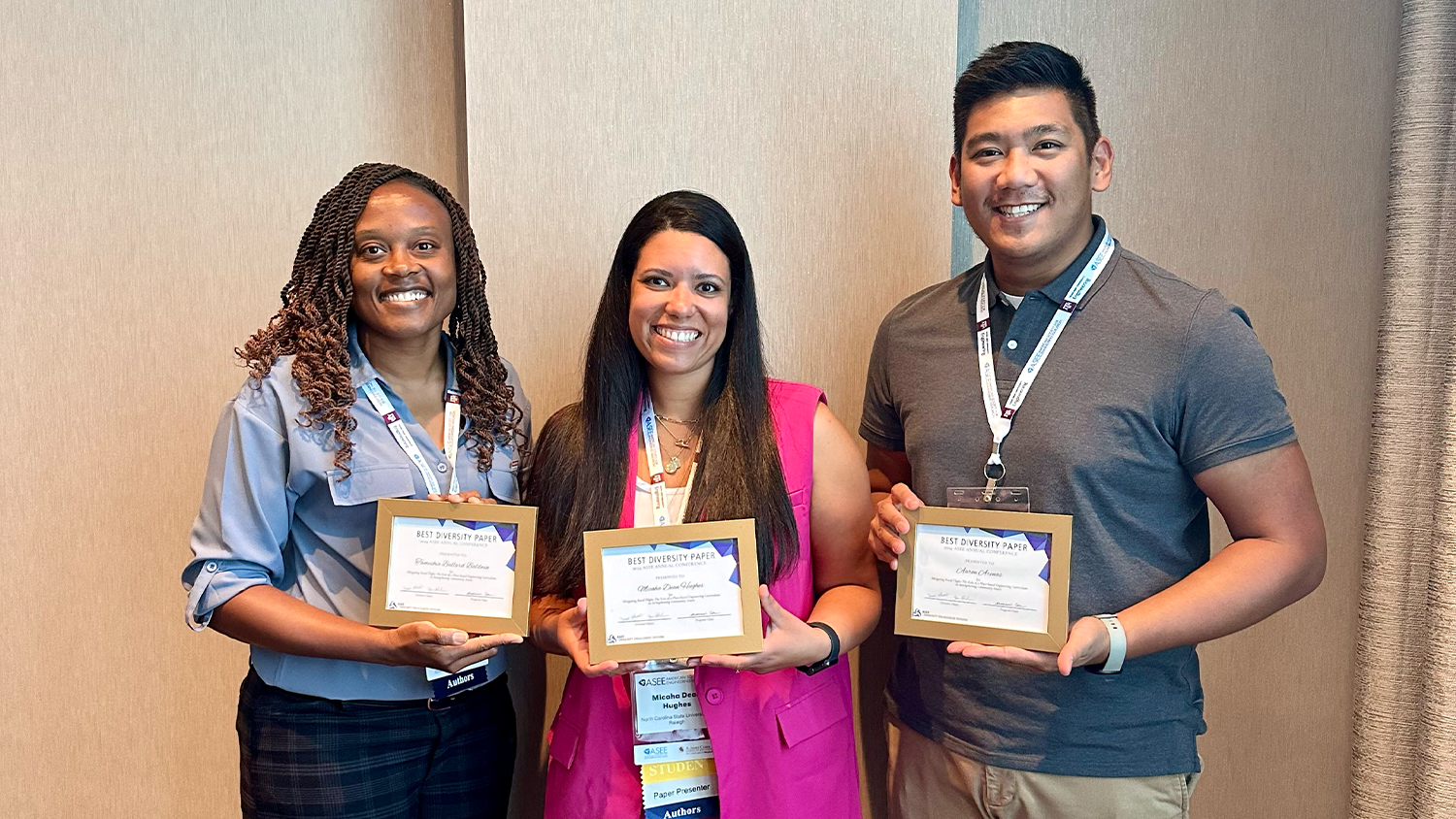Assistant Professor Jill Grifenhagen: ‘Every Child Deserves an Excellent Literacy Teacher Each Year and Elementary Teachers Need to Be Ready to Meet Students’ Diverse Literacy Needs’

No matter how much Jill Grifenhagen, Ph.D., tried to resist following in the footsteps of her mother and other family members who were teachers, the career path kept finding her.
She finally gave into her calling during a sociology course she took as an undergraduate that focused on social stratification, where she learned about the ways educational systems can both perpetuate and transcend social inequalities.
“I was inspired to choose teaching as a way to address economic and social injustices,” Grifenhagen said.
Before becoming an assistant professor of literacy education in the NC State College of Education, Griffenhagen taught first and second grade in schools with high needs in various parts of the country.
When she saw firsthand how many students in her classrooms were already struggling with literacy, she was compelled to learn more about the early childhood experiences that prepare students for success in elementary schools and help prepare elementary school teachers who can meet the language and literacy needs of all students.
Elementary literacy instruction, she said, can influence the trajectory of a child’s success in reading and writing, their broader long-term academic achievement and their views of themselves as capable readers and writers.
“The students sitting in our elementary classrooms don’t get another chance at kindergarten or first grade. Every child deserves an excellent literacy teacher each year, and elementary teachers need to be ready to meet students’ diverse literacy needs from day one,” Grifenhagen said.
To make sure pre-service teachers in the College of Education’s elementary education program are prepared to address students’ literacy needs, Grifenhagen and other colleagues in the program consider literacy research, state standards and the current context of North Carolina schools when designing methods courses. The goal is for all pre-service educators to understand the full scope of literacy instructional knowledge, practices, skills and domains.
Jessika Patel ‘21 said one lesson from Grifenhagen’s language arts methods course that stood out to her focused on how the regions students come from and the dialects they use can impact the way they tell and understand stories.
“I really loved the conversation on linguistic diversity because, in that class, we spent time really analyzing the differences between dialects and how culture influences what we deem as important, specifically to children,” Patel said. “This helps us put ourselves inside the minds of students we would potentially be working with to help us understand where they are coming from.”
In addition to helping prepare pre-service teachers, Grifenhagen’s research also focused on providing support for beginning K-2 teachers through Wolfpack WORKS (Ways to Optimize Reading/Writing for Kids Statewide), which ended in the summer of 2021. She was the principal investigator on the literacy initiative, which was designed using 10 evidence-based literacy practices and supported about 460 beginning K-2 teachers and about 11,000 K-2 students in 15 high-needs districts in North Carolina since it began in 2018.
During all three years of the program, nearly all participating teachers demonstrated gains in self-efficacy in literacy instruction and between 94% and 97% reported a desire to remain in the classroom. Based on the data available and collected through an independent evaluation, Wolfpack WORKS has also helped to improve reading proficiency and reduce performance gaps, most significantly among male students and students with greater literacy needs in first grade.
“The teachers we work with face many challenges but are so resilient and committed to their students, and it is an honor to work with them. We are finding real impacts on participating teachers’ knowledge, practice and even retention, as well as relationships with student literacy outcomes,” Grifenhagen said. “I am proud of how much new knowledge we are generating from this project while also having a significant and immediate impact on teachers and students across our state.”
Grifenhagen believes that it is important to give undergraduate students an opportunity to get involved with research as well. Over the past several years, she has mentored a number of undergraduate students in the elementary education program and helped them become involved in identifying research questions, collecting and coding data and presenting findings.
Most recently, she has been working with three students who are interested in the ways elementary school teachers have shifted their read-aloud practices during remote learning, helping them to analyze data and hopefully present their findings at the Undergraduate Research Symposium in the summer.
“All of this work is literacy-related, so it is also helpful in their professional development as teachers,” Grifenhagen said. “These students are very passionate about literacy teaching, and their curiosity is driving the project.”
Emma Wilson ‘21 worked with Grifenhagen through Wolfpack WORKS before taking her language arts methods course and was grateful to be able to learn from her in both scenarios.
“Dr. Grifenhagen is very knowledgeable with literacy and writing and it was really fun learning from her, just listening to what she had to say about her experiences and how we can take what she does and what she knows and apply it ourselves,” Wilson said.
Grifenhagen said that she tries to model best practices of both pedagogy and andragogy in her courses, appealing to students’ interests, engaging and motivating them as learners and differentiating instruction to meet students where they are.
She wants her students to come away with an appreciation for the importance of having a flexible toolkit for teaching literacy and with an appreciation of their elementary students as unique learners.
“Every child comes to school with language and literacy knowledge. Every child is a writer. Every child is a language learner. It is our job as educators to tap into what motivates students, build on what they already know and give them the tools to succeed,” she said.
- Categories:


